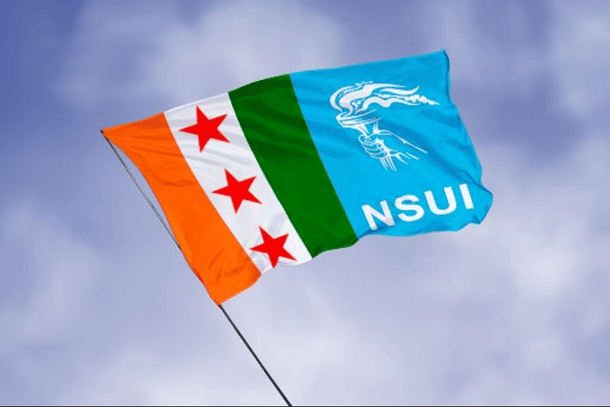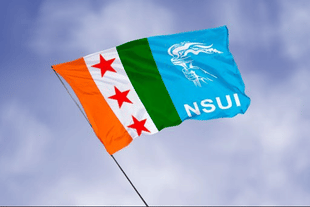News Brief
NSUI Makes Comeback In DU Student Union Elections After Seven Years, Delhi Congress Sees Hope For Assembly Polls
Arjun Brij
Nov 26, 2024, 02:44 PM | Updated 02:44 PM IST
Save & read from anywhere!
Bookmark stories for easy access on any device or the Swarajya app.


In a significant political shift, the National Students' Union of India (NSUI), the student wing of the Congress party, has made a strong comeback in the Delhi University Students' Union (DUSU) elections after a seven-year drought period.
NSUI’s candidate, Rounak Khatri, won the presidential race, defeating Rishabh Chaudhary of the Akhil Bharatiya Vidyarthi Parishad (ABVP) by over 1,300 votes. Khatri received 20,207 votes, while Chaudhary garnered 18,864 votes, making it a decisive victory for NSUI.
The win is seen as a revival of the Congress-backed student organisation, which had been sidelined by ABVP’s dominance in the university’s student body in recent years.
The election results, originally set to be announced on September 28, were delayed due to a Delhi High Court order that required the cleaning of election-related defacement on university property due to instances of violations of Lyngdoh Committee before the results could be declared.
With the court’s conditions met, the results were announced, and celebrations broke out among NSUI supporters soon after the outcome. In addition to the presidential win, NSUI also secured the joint secretary position, with Lokesh Choudhary emerging victorious.
However, ABVP managed to retain the vice-president and secretary roles, with Bhanu Pratap Singh securing the vice-presidency with 24,166 votes, and Mitravinda Karanwal winning the secretary post with 16,703 votes, defeating NSUI’s Namrata Jeph Meena.
Khatri, after his win, expressed confidence in his team’s mandate, stating, “The politics of performance has won in DU. Those who fought the election on false promises have lost.” He emphasised his focus on improving the university’s infrastructure, particularly highlighting changes made in the Law Faculty that he promised to extend across the campus.
Despite NSUI's success in the presidential and joint secretary posts, ABVP’s continued hold on the vice-president and secretary positions indicates that the right-wing student group remains influential within the university’s political landscape.
ABVP’s resilience in maintaining these key positions shows its enduring support among students, particularly those aligned with right-wing ideologies.
The results of the elections at the college level that were announced on Sunday (24 November) had ABVP dominate in five colleges, securing a clean sweep, while NSUI claimed all positions in two colleges. In the other institutions, candidates from both parties won various posts, according to the data released by the organisations.
The DUSU elections are a highly competitive and symbolic battleground for student politics in India, with DU often serving as a microcosm of the broader political environment. The results carry significance beyond just the student body, reflecting broader political trends.
The victory of NSUI in the presidential race is seen as a boost for Congress and its student wing, signaling a potential shift in student activism and political engagement at the university level.
In the aftermath of the elections, a set of guidelines was issued by the DU administration, requiring candidates to refrain from disruptive celebrations such as loudspeakers, bursting crackers, and organizing roadshows.
Any violation of these terms could result in disqualification or removal from office. This was part of an effort to maintain order and prevent the kind of excessive celebrations that have sometimes marred post-election events in the past.
Delhi Congress chief Devender Yadav stated that the victory of NSUI, the party's student wing, highlights the desire for change among the city's youth. He also claimed that the win signifies a strengthening of the Congress party ahead of the 2025 Delhi assembly elections.
Arjun Brij is an Editorial Associate at Swarajya. He tweets at @arjun_brij





